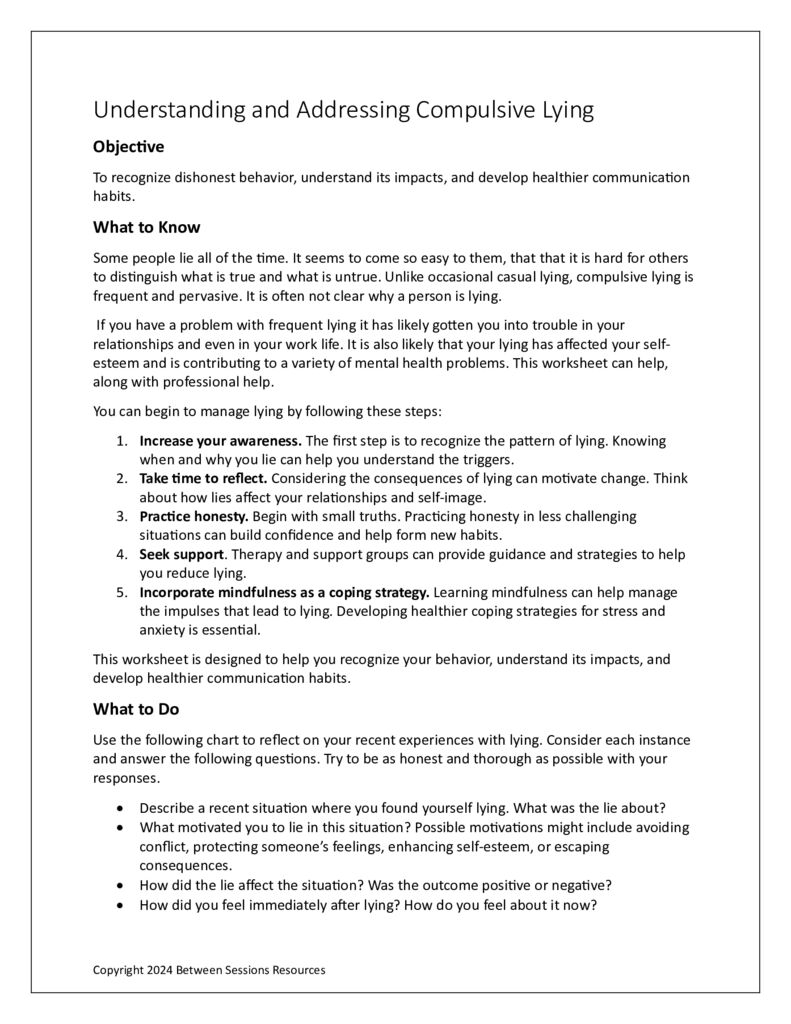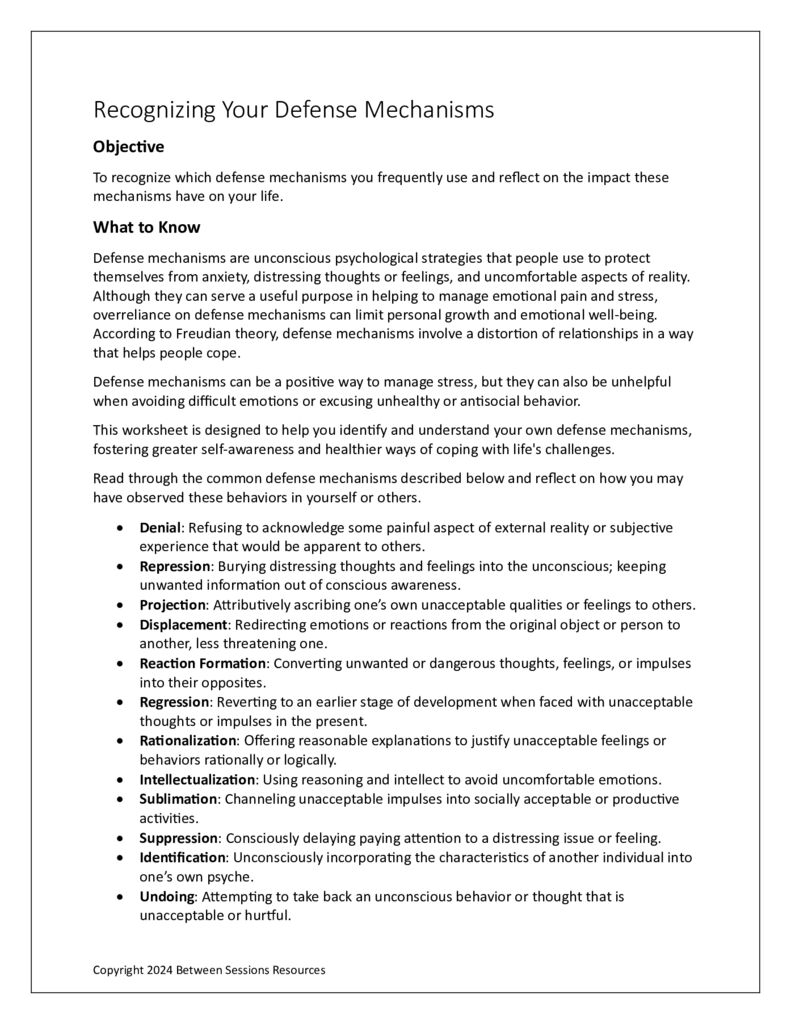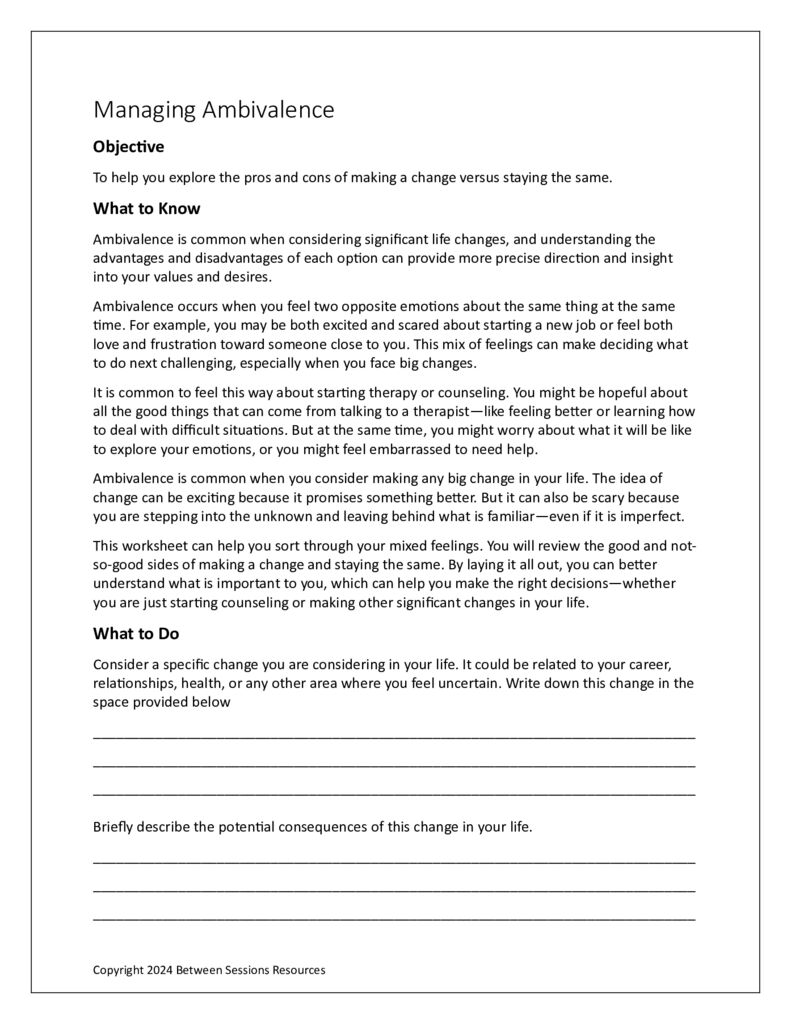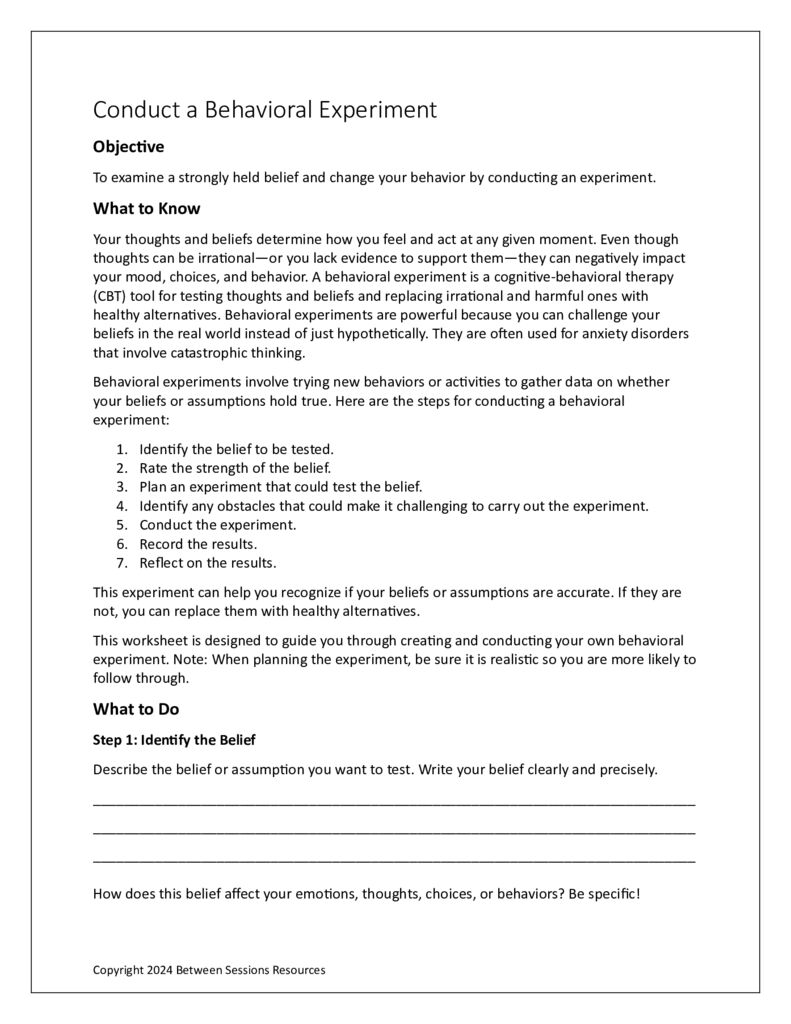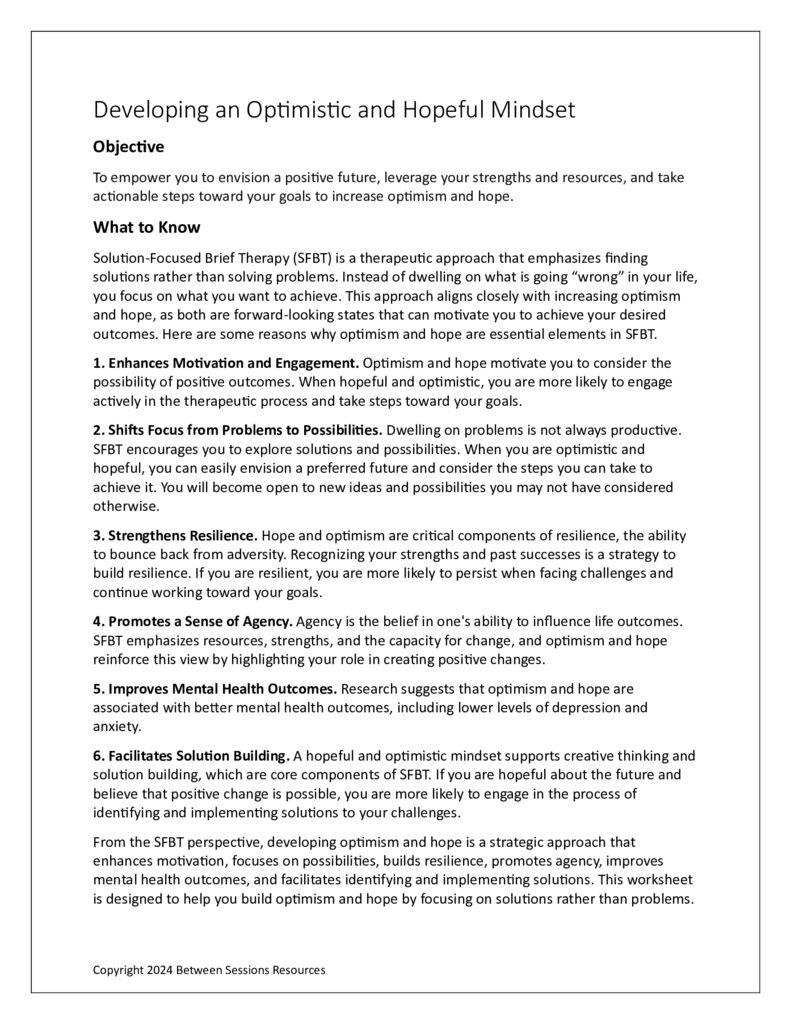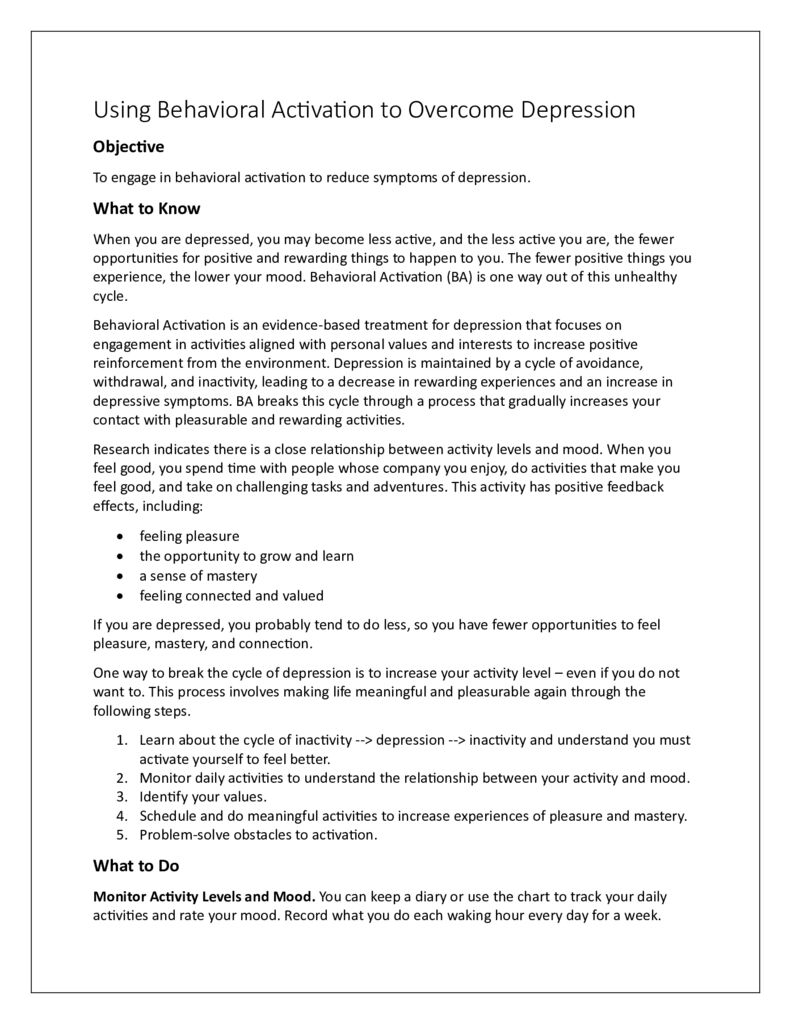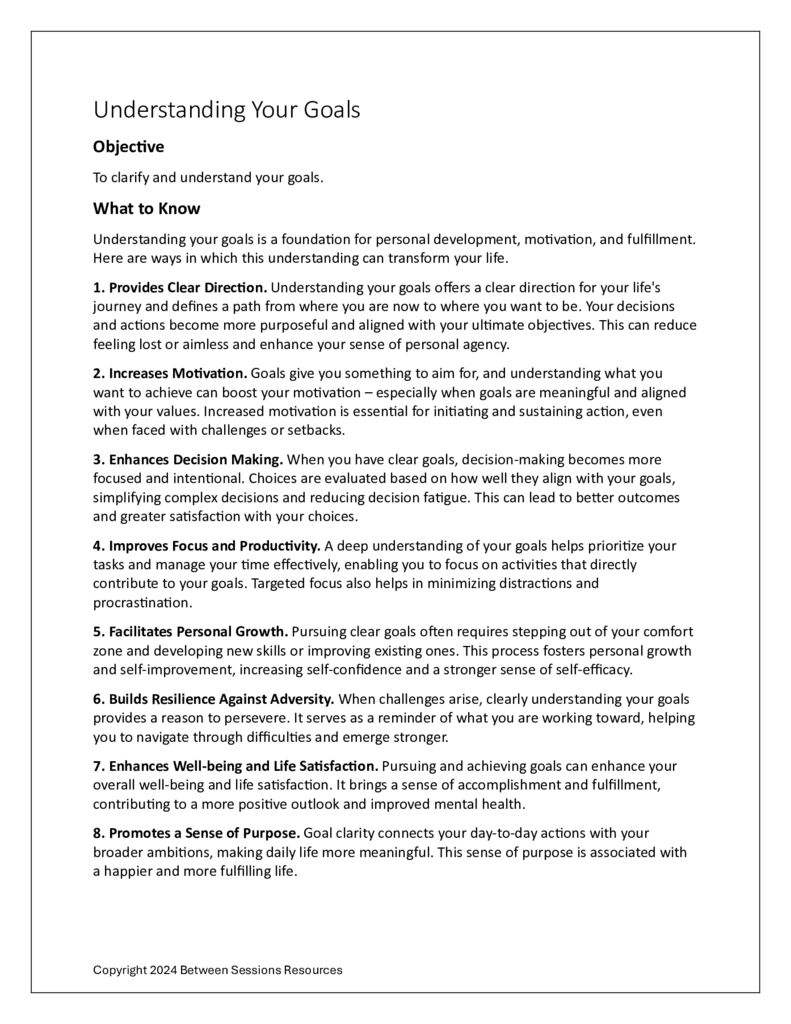This mood log can help people keep track of triggers, moods, and patterns affecting their emotional regulation. (0624, moods, Bipolar Disorder, depression anxiety, assessment)
This worksheet suggests that people make a playlist to help them shift their mood if they are angry, depressed, anxious, or upset. It guides them to select a song that reflects their current feelings, and then several transition songs. The playlist ends with a song that could trigger a desired emotion. (0624, depression, music therapy, mood, emotional regulation)
This worksheet is designed to help people visually explore and organize their thoughts and feelings. In drawing a map, people are asked to reflect on connections between thoughts and feelings, boundaries that should be put in place, and more. (0524, mind map, insight, planning, coaching)
This worksheet is intended to help people recognize dishonest behavior, understand its impacts, and develop healthier communication habits. It explores how compulsive lying can affect relationships and contribute to other mental health problems. (0524, lying, pathological lying, compulsive lying)
This worksheet is designed to help you introduce the concept of defense mechanisms to your clients. Defense mechanisms can include denial, repression, projection, idealization, compartmentalization, and more. (0424. depression, psychodynamic therapy)
This worksheet encourages people to explore how they deal with ambivalence in their lives thinking about the pros and cons and the consequences of making changes. It also helps people identify the barriers to change and consider how they can be overcome. (0424, depression, anxiety, relationships, decisions, problem-solving, CBT)
This worksheet challenges people to test their beliefs about their problems by trying new behaviors. The worksheet takes people through a systematic approach to trying new behaviors, including anticipating challenges and obstacles, observing changes, and analyzing the results of the “experiment.” (0424, behaviors, solution-oriented therapy, CBT)
This approach to increasing optimism is based on Solution-Focused Brief Therapy (SFBT). The worksheet is designed to increase motivation, shift a person’s focus from problems to possibilities, stimulate creative thinking, and more. (0424, hope, depression, Solution Focused Therapy, agency)
Behavioral Activation is an evidence-based treatment for depression that focuses on engagement in activities aligned with personal values and interests to increase positive reinforcement from the environment. Doing things when you are depressed is not easy, but this worksheet helps people understand the cycle of inactivity and depression, monitor their daily activities, schedule and do meaningful activities, and problem-solve obstacles to behavioral activation. (0324, DBT, behavioral psychology, depression)
This worksheet, based on Solution-Focused Brief Therapy (SFBT) is intended to help people see the importance of setting realistic goals. It asks people to envision how they want their future to look and then write 3 realistic goals that can guide their decisions and behaviors. It also asks them to think about people who can help them achieve their goals and designate small steps with each one bringing them closer to their goals. (0324, Solution-Focused Brief Therapy, goal-setting, problem-solving)




